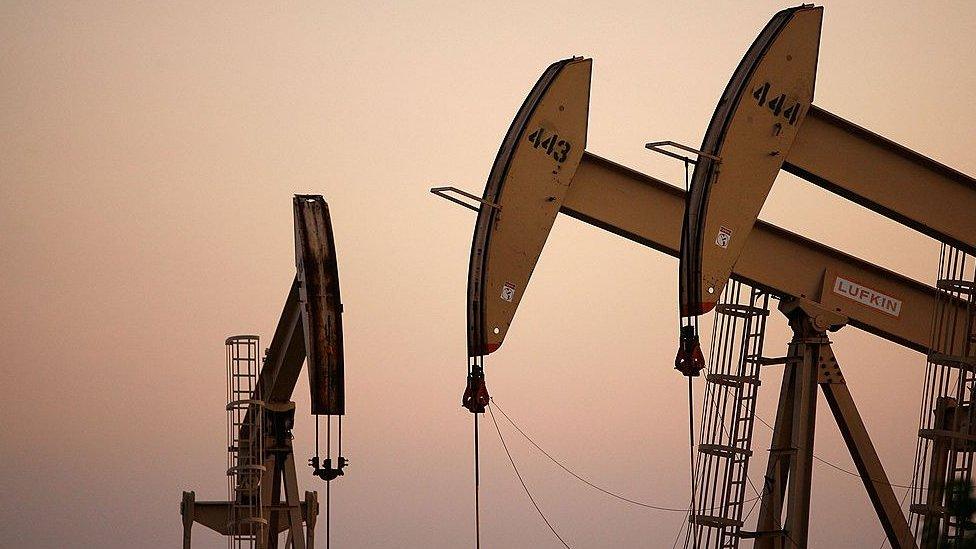Petrol prices at eight-year high amid fuel issues
- Published
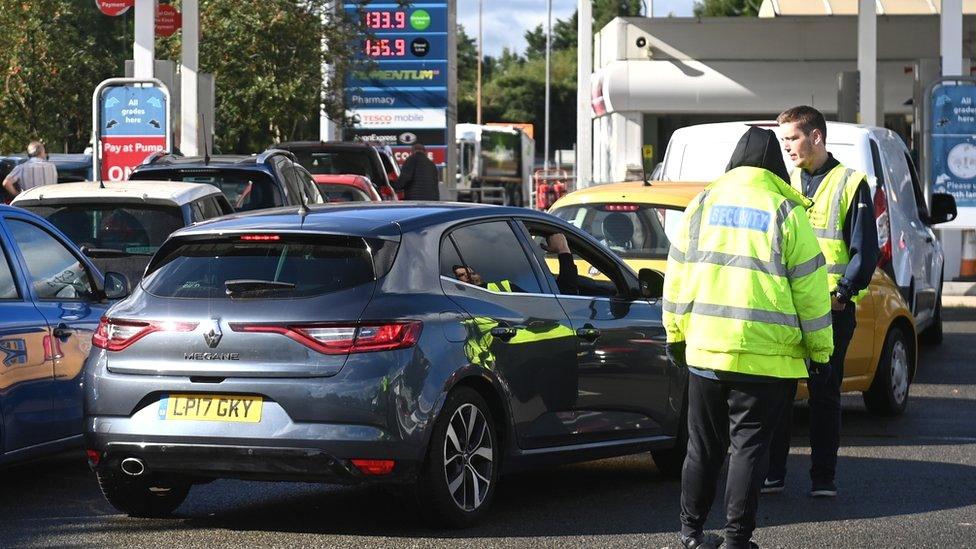
Petrol prices have hit an eight-year high, the RAC has said, due to a rise in the cost of wholesale fuel.
The pump price spike also comes amid the current fuel supply problems and reports of profiteering at some petrol stations.
This is adding up to a "pretty bleak picture for drivers", the RAC said.
The government has put the army on standby to help ease fuel supply problems caused by a shortage of lorry drivers to make deliveries.
The RAC said that the average price of a litre of petrol across the UK increased from 135.87p on Friday to 136.59p on Sunday, the highest level since September 2013.
The motoring organisation warned that prices could rise further as retailers pass on the cost of rising wholesale prices.
The wholesale price of petrol rose from 123.25p on Monday last week to 125.22p just four days later.
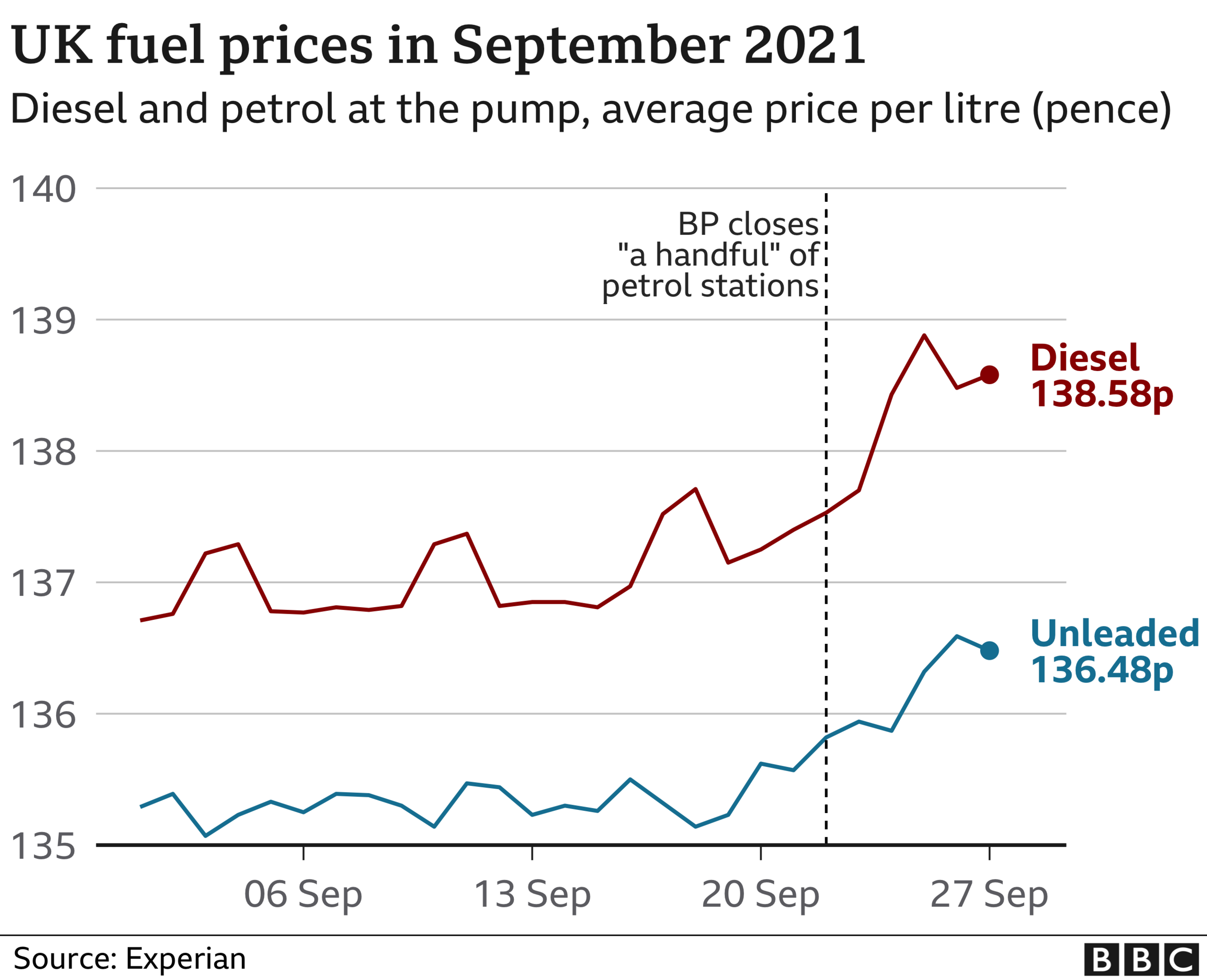
Oil prices slumped at the start of the coronavirus pandemic, but demand has been rising in recent months as economies around the world have started to reopen.
Global oil supplies have also taken a hit from hurricanes Ida and Nicholas passing through the Gulf of Mexico and damaging US oil infrastructure.
The price of Brent crude oil rose above $80 a barrel on Tuesday for the first time since October 2018.
RAC fuel spokesman Simon Williams said: "When it comes to pump prices, it's a pretty bleak picture for drivers.
"With the cost of oil rising and now near a three-year high, wholesale prices are being forced up which means retailers are paying more than they were just a few days ago for the same amount of fuel.
"This has led to the price of a litre of unleaded already going up by a penny since Friday.
"We might yet see higher forecourt prices in the coming days, irrespective of the current supply problems.
"We are also aware of a small number of retailers taking advantage of the current delivery situation by hiking prices, so we'd remind drivers to always compare the price they're being asked to pay with the current UK averages which are 136.69p for petrol and 138.58p for diesel."
There is a national shortage of lorry drivers, which haulage firms have blamed on factors including Covid and Brexit.
The lack of drivers has been affecting businesses from food firms to petrol stations.
Demand for fuel has been such that between 50% and 90% of pumps were dry in some areas of Britain, according the Petrol Retailers Association (PRA).
The industry group represents independent fuel retailers who account for 65% of all the 8,380 UK forecourts.
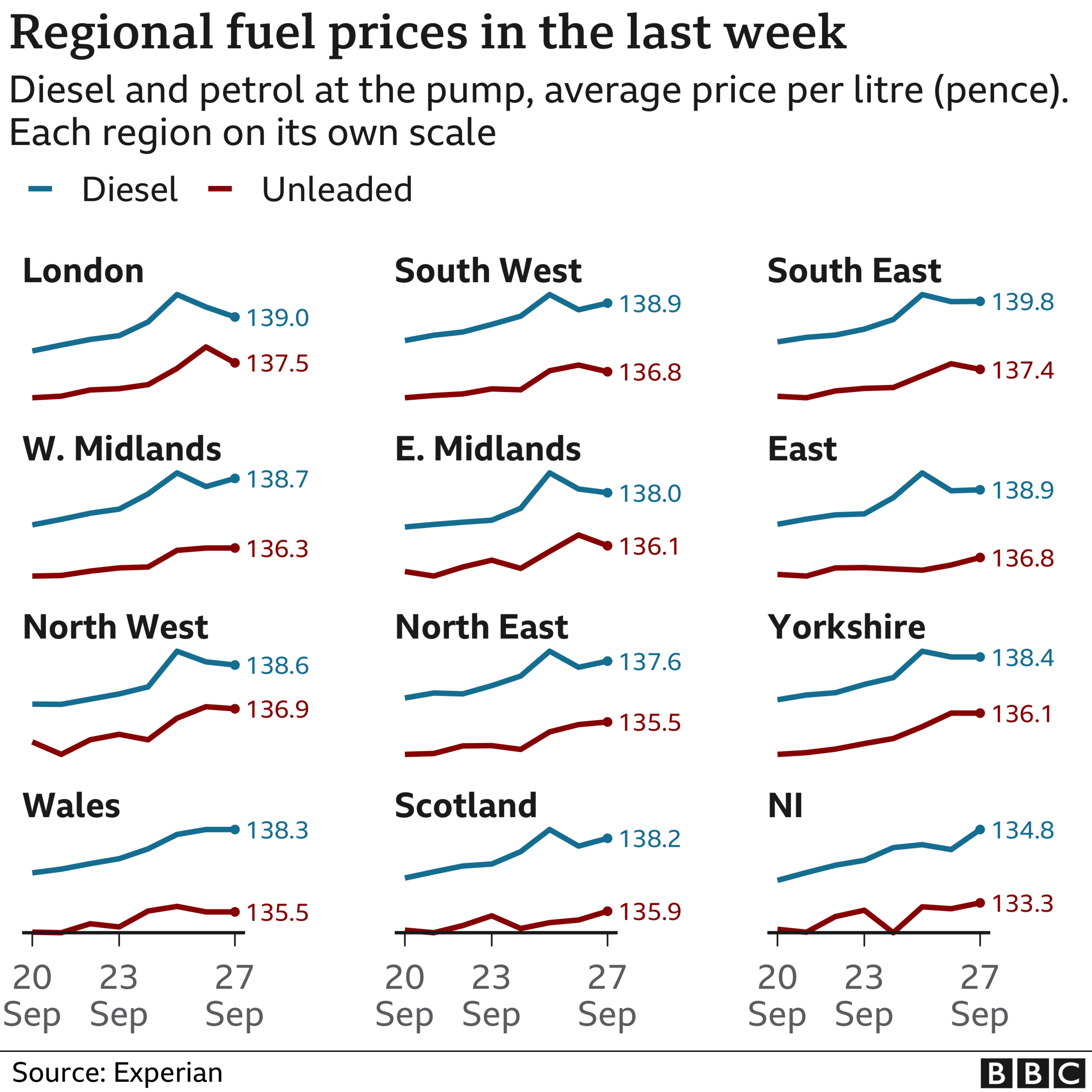
'Profiteering'
There have been claims on social media that some petrol stations are taking advantage of the surge in demand to inflate prices.
Twitter user Trevor Lakin said, external that Shell was "marking prices up and profiteering" after charging 148.9p a litre at a petrol station.
A Shell spokeswoman said that about half of Shell's UK network is owned by independent dealers who set their own prices.
"We are only able to control prices at the sites we own," she said, adding that "Shell is prevented by law from telling dealer groups what to charge their customers for fuel."
Howard Cox, founder of campaign group FairFuelUK, said price rises of between 5p and 10p per litre have become "the norm in the last few days".

Have you noticed any price rises when refuelling recently? Get in touch to share your experiences by emailing haveyoursay@bbc.co.uk, external.
Please include a contact number if you are willing to speak to a BBC journalist. You can also get in touch in the following ways:
WhatsApp: +44 7756 165803
Tweet: @BBC_HaveYourSay, external
Please read our terms & conditions and privacy policy
If you are reading this page and can't see the form you will need to visit the mobile version of the BBC website to submit your question or comment or you can email us at HaveYourSay@bbc.co.uk, external. Please include your name, age and location with any submission.
Related topics
- Published28 September 2021
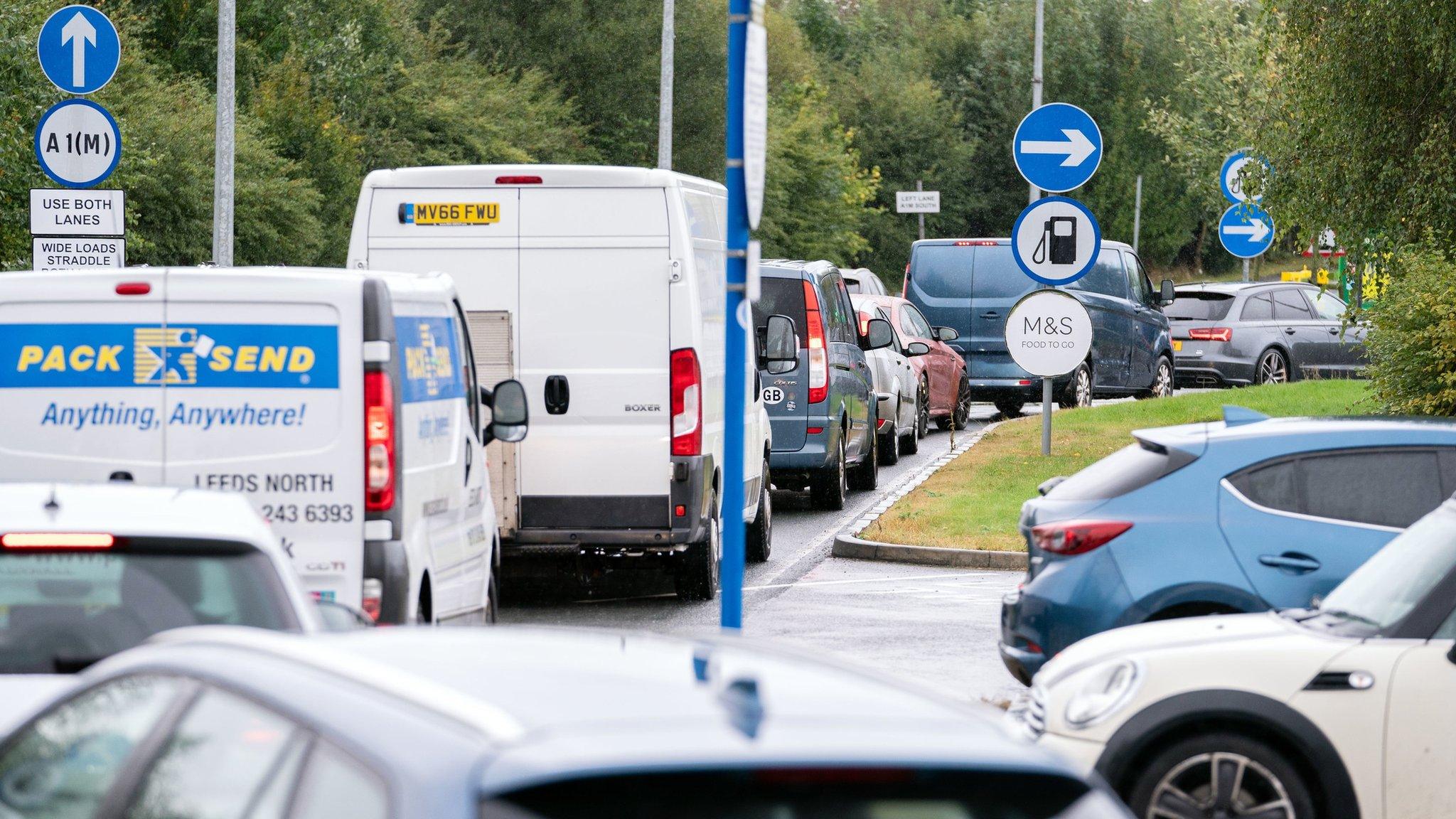
- Published18 July 2021
